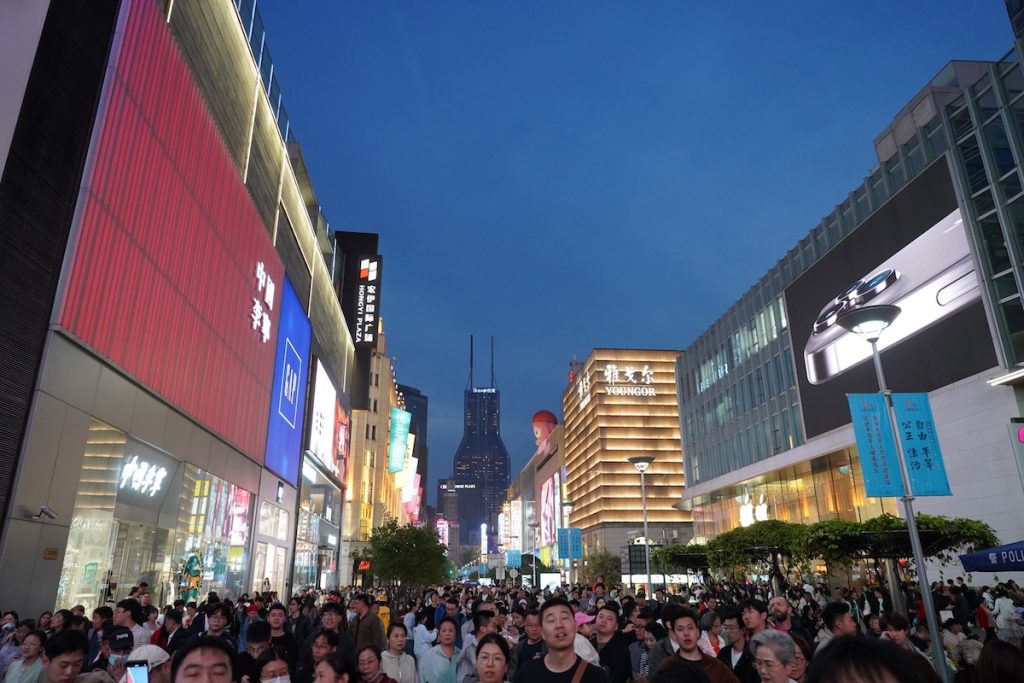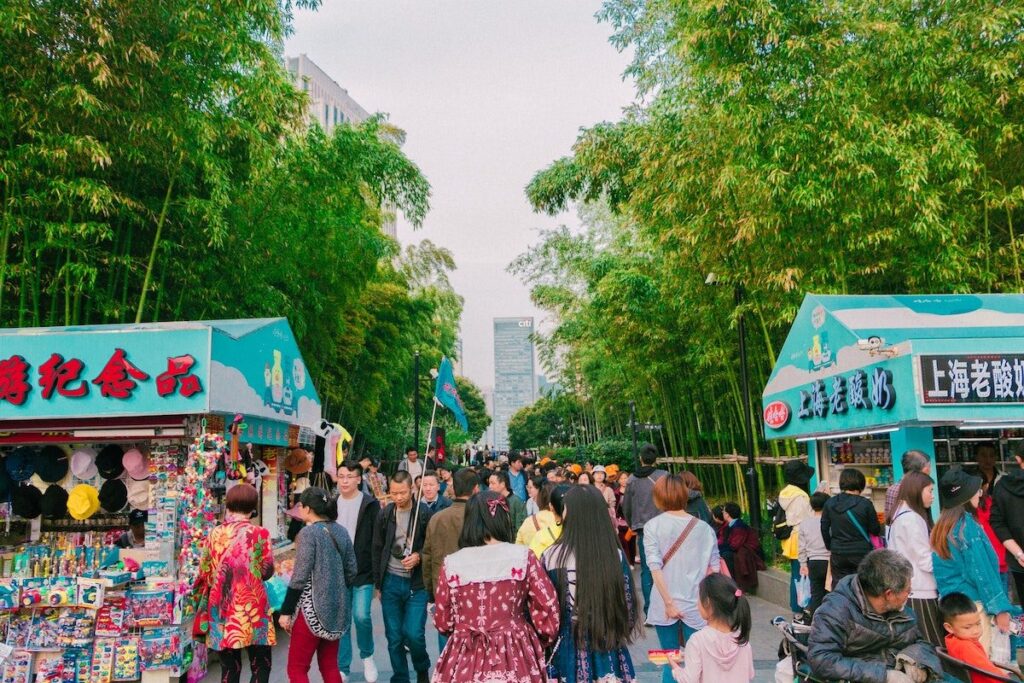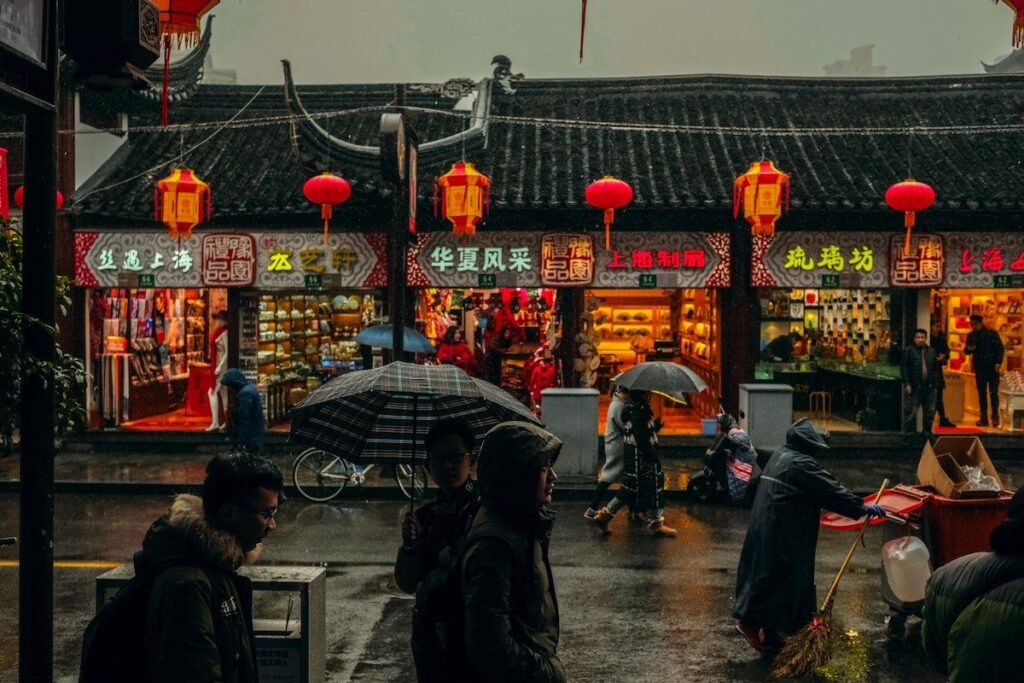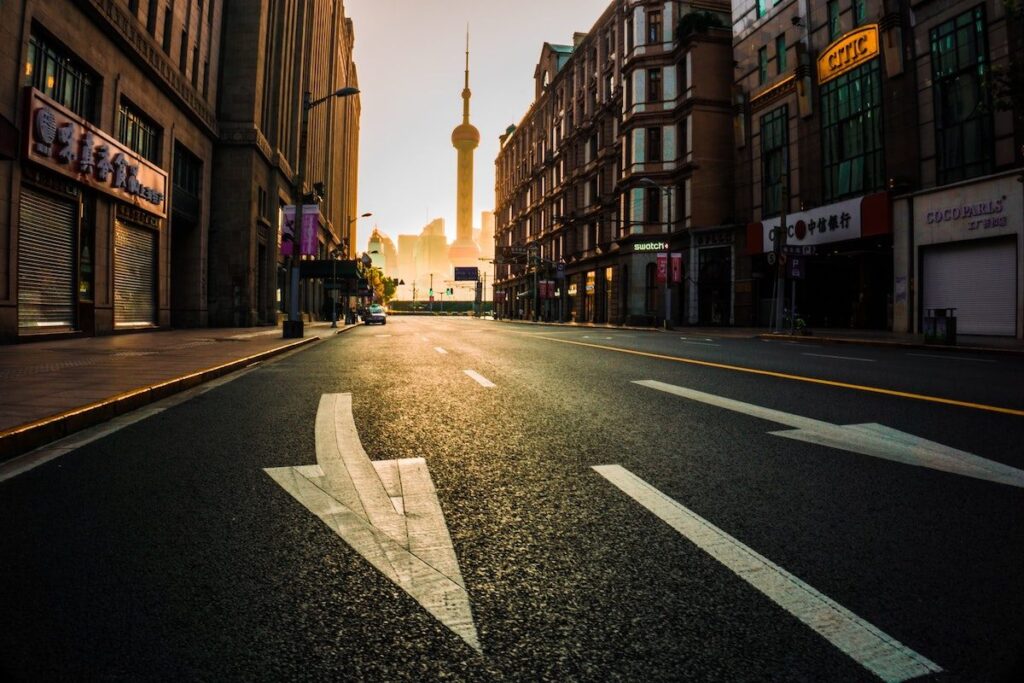
Start planning your trip to the Formula 1 Chinese Grand Prix 2025 in Shanghai. Information about visas, money & language
- The 2025 Chinese Grand Prix is scheduled for March 21-23
- Tickets are now on sale via our trusted supplier
- Paddock Club packages are available from F1 Experiences
- Join our Chinese GP Facebook group to connect with fellow fans
- This post contains affiliate links. We may receive a commission if you make a purchase after clicking on one of these links
After being closed off to the rest of the world during the Covid-19 pandemic, China ended its Zero-Covid policy in early 2023. The country is once again open to international tourists and F1 returned to the Shanghai International Circuit in April 2024 for the first Chinese Grand Prix in five years.
Shanghai Travel: Need to know
- Time zone: Shanghai is GMT + 8 hours
- Weather: In general, Shanghai has a mild and humid climate with four distinct seasons. The Chinese F1 Grand Prix is held in spring, often cited as the best time to visit Shanghai. Daytime temperatures range between 11-19˚C (52-66°F) and rain is not uncommon.
- Language has always been a big barrier when travelling in China, a huge country with many languages and dialects where English is not widely spoken. Even if you are lucky enough to be well versed in Mandarin, the official language of China, Shanghai locals mostly speak Shanghainese (a dialect of Wu Chinese) and may not understand you. Make sure you install a decent translation app on your smartphone to help you communicate with the locals more easily.
- In case of emergency, dial 110 for the police (an English speaker should be available)
- China uses type A and type I power sockets. European/US appliances should work with type A and Australian/NZ appliances should work with type I, but it’s worth taking a universal adapter, just in case.
- More Info: Official China Travel Website

About China & Shanghai
Founded in 1949 after the Communist Party won the Chinese Civil War against the Kuomintang, the People’s Republic of China has a population of 1.41 billion. The transition from state socialism to a more capitalist system has fuelled the rapid growth of China’s economy, making it the second largest in the world and lifting more than half a billion Chinese people out of poverty. With 24 million residents, Shanghai is one of the world’s largest cities by population. The word “Shang Hai” literally means “above sea” which explains the city’s humble beginnings as a fishing village before the first Opium War. It is now a booming global financial center and one of the busiest container ports in the world. Known as the Paris of the Orient, foreigners will feel at home in a city that marries the east and west, particularly in its architecture.
Shanghai is the birthplace of Chinese modernization and a cultural and economic hub in East Asia, The city is home to several important museums of regional and national importance and is at the heart of Chinese literature, cinema, theater and modern Chinese art and fashion. Over the past five years, the architectural landscape of Shanghai has influenced and inspired the cyberpunk culture with futuristic buildings like the Oriental Pearl Tower and Yan’an Elevated Road that are often bathed in neon lights.
Do I Need a Visa for China?
In recent years, China has adopted a 144 hour (6 day) visa-free policy in key areas of the country; including Shanghai. The Visa-free Transit Policy applies to visitors from 53 countries, including the United States, the U.K. and Australia. A full list of the countries to which the policy applies, and information on the documents you’ll need, can be found here. Further areas of China have also adopted the same policy, which is worth bearing in mind if you’re planning to see more of the country on your visit to the Grand Prix.
Since the end of pandemic restrictions, China has also begun offering visa-free entry for up to 15 days to citizens of the following European countries: France, Germany, Italy, Spain, Netherlands, Switzerland, Ireland, Hungary, Austria, Belgium and Luxembourg.
If not exempted by the above agreements and regulations, foreign visitors entering China (except for those from Hong Kong, Macau, or Taiwan) need to acquire the appropriate visa prior to their trip. You can apply for a visa at the nearest Chinese Embassy, the Chinese Consulate General, or the Chinese Visa Application Service Centre. Find out where you can apply here.

Internet Restrictions in China
Access to around 10,000 websites in China, including most social media sites, is blocked due to the country’s strict Internet censorship policy. If you’re hoping to keep in contact with your friends back home during your trip to Shanghai via Twitter, Facebook, Instagram etc., you’ll need to sign up for a VPN. This needs to be done before you vacate for China as you won’t be able to download the software once you have arrived. During our trip to the 2024 Chinese Grand Prix, we used Astrill VPN and it worked well. It’s also worth noting that Google Maps is not reliable in China, as servers may be blocked and some businesses/locations censored. Using with a VPN can improve the effectiveness of Google Maps, or you can download maps for Shanghai before arriving in the country, and use it offline. Alternatively, Apple Maps seems to work much better in China than Google Maps. The most popular Chinese maps app, Baidu Maps, is only available in the Chinese language.
Medical Care in Shanghai
Don’t forget to get travel insurance and any prescribed medications before you travel. Even though OTC remedies are readily available in any Shanghai pharmacies and supermarkets, it’s still a good idea to bring medications for mild ailments like stomach aches, flu and fever. If you have allergies towards pollen, bring your antihistamines as the Chinese Grand Prix is held in spring. Should you fall sick, contact your hotel reception as there may be an in-house doctor on duty. Alternatively, they can refer you to the closest clinic. Finally, you are probably aware that China has a serious problem with poor air quality. Consider buying yourself an air mask if poor air quality is forecast (check here).

Safety in Shanghai
Generally, Shanghai is one of the safest cities in the world and while petty crime remains a problem, the level of violent crime remain low. F1 fans should be vigilant of pickpockets in crowded places such as at the circuit, near tourist attractions and on public transport. Should you find yourself being a victim of theft or deceit, immediately lodge a police report at the nearest Public Security Bureau. While you may not recover what you have lost, you will have the report to file for a claim from your travel insurance.
Money Matters
The Chinese currency is the Yuan Renminbi (RMB or CN¥). When changing money, the rate is the same nationwide and is determined by the central government. There are money exchange facilities at the airport, hotels and banks. Not that many Chinese bank machines accept foreign cards, but the situation is improving in large cities like Shanghai. Tipping is not expected; many establishments even observe a strict no-tipping policy. To really get by in China now, you will need to have mobile payments set up and configured on your smart phone. The two most popular payment apps are Weixin Pay (part of the WeChat app, also known as WeChat Pay) and Alipay. It’s recommended to download and configure your chosen app before traveling to China.
Get the Inside Line
For the latest ticket & event news, subscribe to our mailing list for the 2025 Chinese Grand Prix (March 21-23)



I just found out that there is not just a 72h visa free transit in Shanghai possible, there is also a 144h visa free transit possible.
You could add that at the visa segment:
https://www.travelchinaguide.com/tour/visa/free-transit-144-hours.htm
That’s really valuable info Robert, thanks a lot!
You’re welcome Andrew, from one fan to others!